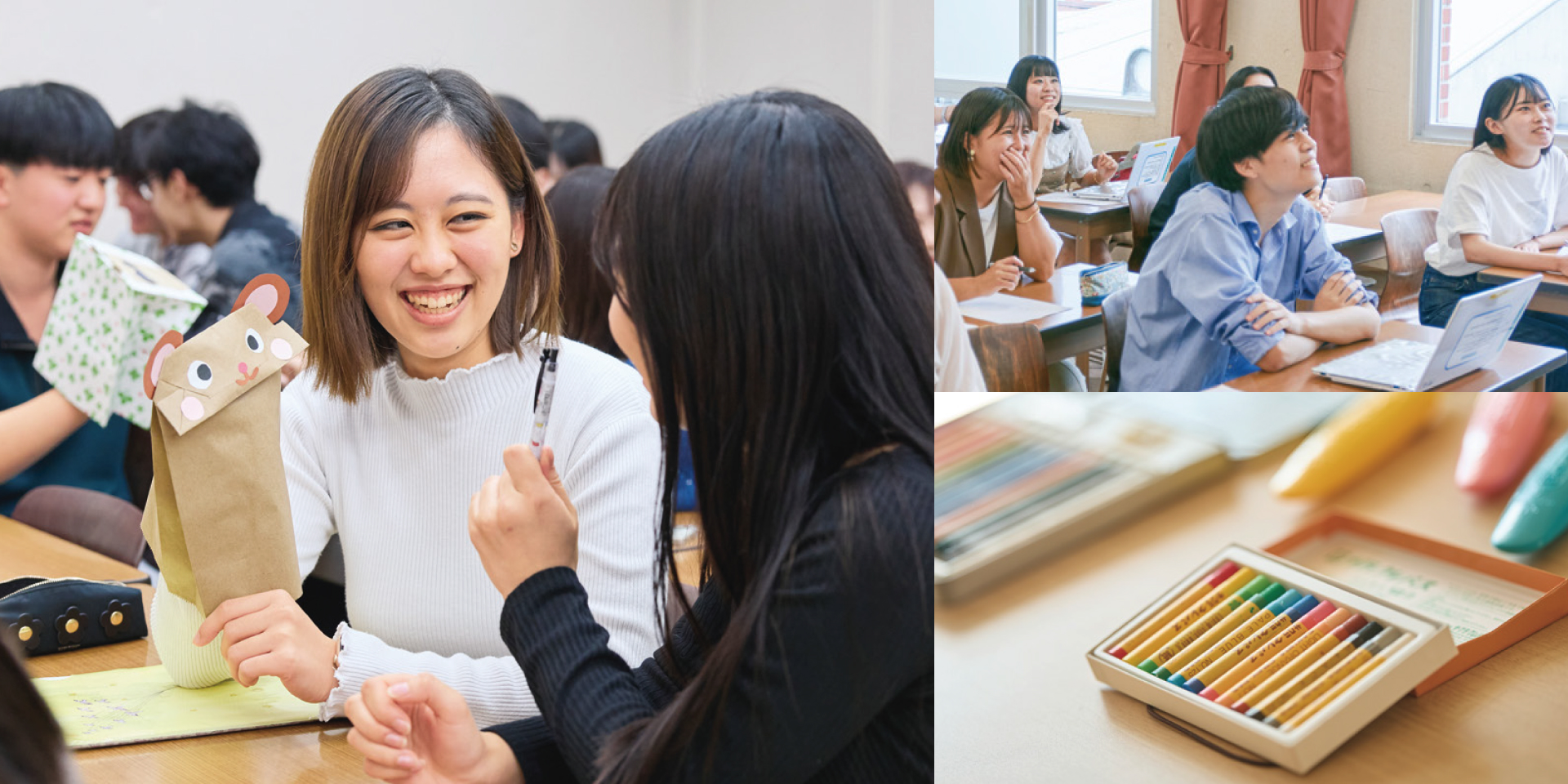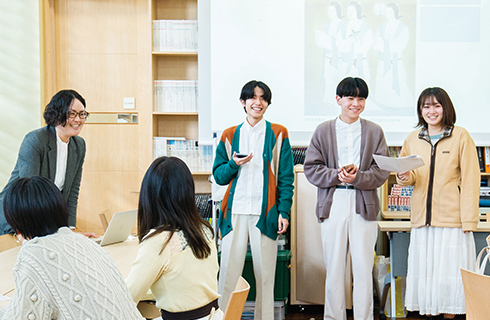Department of Education and Child Development
Department of Psychology
Department of Education and Child Development

Developing human resources capable of supporting child development
The Department’s curriculum on education and child development integrates three fields: psychology, pedagogy (primary education), and disability sciences. Through the study of these fields, students explore ways to resolve issues related to the development of the young mind. We aim to develop human resources and educators capable of understanding the psychology of school-age children, supporting their mental and emotional development, and working to resolve various issues facing schools and society today.
Department of Education and Child Development
Key Features of the Department of Education and Child Development
Program Structure
Topics
Admission Policy
Key Features of the Department of Education and Child Development
Point 01
The study of education and child development is intended to prevent children being left behind
Addressing the psychological issues that children face today requires both an understanding of the mechanisms of development and disability and a comprehensive approach that considers all aspects of children’s lives. Through the Department’s integrated educational program, students gain a deeper understanding of children and learn how to support them. By developing competencies in the three areas of problem prevention and resolution, individual support and group education through the plan-do-check-improve cycle, and instruction that integrates academic subjects with lifestyle guidance, the Department develops human resources capable of supporting children’s mental and emotional development.
Point 02
Three courses tailored to future career paths
In their first year, all students focus on gaining a basic grasp of child development and psychology. Starting in their second year, they specialize in one of three courses depending on their interests or career goals. These courses give them the ability to respond to needs with a wide range of supportive methods, as schools currently require, opening up many career options.
Students in all three courses are eligible to obtain a type 1 primary school teaching certificate, a school librarian certificate (see Note 1), or a social welfare officer certificate (see Note 3).
Child Development Course
Participants study learning processes, learning difficulties, teaching and learning psychology, lifespan development psychology, academic education, preschool education, and school education. Most go on to careers as preschool or elementary school teachers or staff at childcare support facilities or private education-related companies. They are eligible for type 1 kindergarten teaching certification.
Special Needs Support Course
Participants study special-needs education, the psychology of children and adults with disabilities, medical care for children with disabilities, and methods of educational, career, and parental support. Most students pursue careers as teachers at special education schools, in regular or special-education classrooms at elementary schools, in resource rooms, or at rehabilitation centers. They are eligible for type 1 special needs education certification (see Note 1).
International Education Course
Participants study multicultural education, psychology for multicultural support services, multicultural educational planning, and English communication. Most pursue careers as elementary school teachers working with foreign children or returnees, as multicultural coordinators, or as staff with international exchange or study abroad programs. They are eligible for type 2 lower secondary school teaching certification (English) (see Notes 1 and 2) or social education supervisor certification (see Note 3).
Note 1: This certification must be obtained in conjunction with a type 1 primary school teaching certificate.
Note 2: Requires completion of courses in other departments. Approximately five to ten students are selected from each class for this certification program.
Note 3: Students in the other two programs may also obtain this certification by completing designated courses within and outside of their program.
Excellent facilities to support learning
Departmental facilities include a clinical psychology center, fieldwork support office, music room, piano practice room, arts and crafts room, home economics room, psychology lab, sculpture room, teaching material development room, and library.
Program Structure
Students start by studying the fundamentals of understanding children, including psychological, developmental, and disability issues, in an introductory course on educational development. Second-year students separate into three courses, all of which emphasize practical applications in the field and deepen the students’ expertise. From their third year, they focus on subjects that support children, and study specific theories and methods for supporting child development. Students hone their practical skills through exercises in which they learn autonomously.
Topics
Remembering what it feels like to be excited, and working to solve problems
Science
In the science course, while performing experiments and making observations, students acquire scientific knowledge and skills from the perspective of a teacher and learn how to set and solve problems.

Learning methods to study and teach science
Psychological Foundations of Academic Teaching
How do children learn and develop? Students learn about psychological theories related to learning and consider how to improve methods of learning and teaching.
